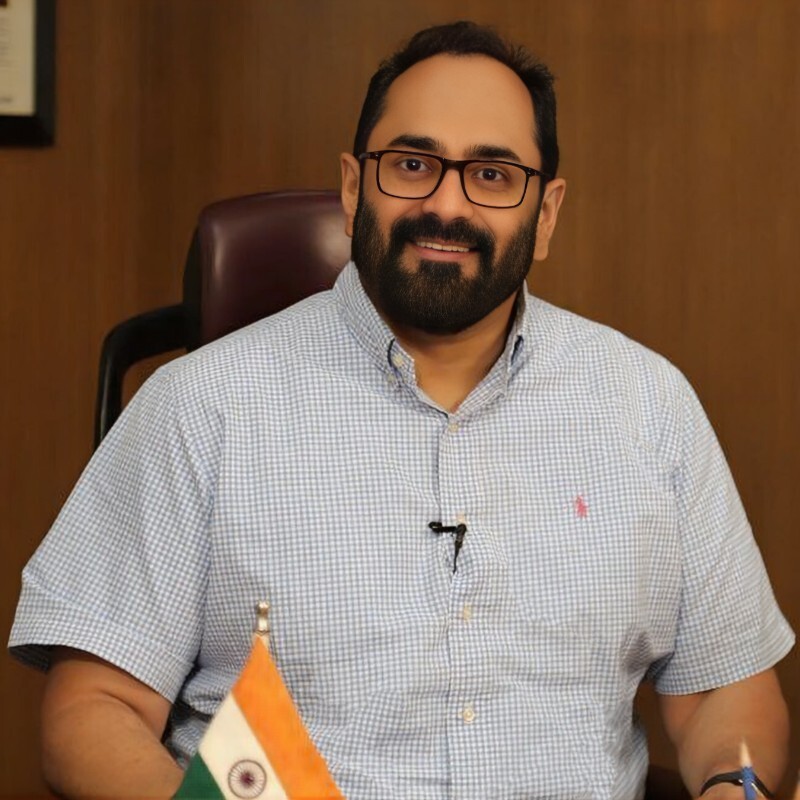In a move that has sparked debates around innovation, accountability, and freedom of expression, the Indian government has issued a directive requiring companies and developers to obtain explicit permission before launching any artificial intelligence (AI) technology or product to the public. The advisory, issued last Friday by the Ministry of Electronics and Information Technology (MeitY), outlines stringent guidelines that AI platforms must adhere to, including labeling potentially unreliable outputs, preventing bias and discrimination, and safeguarding the integrity of electoral processes.
According to the advisory, “The use of under-testing/unreliable Artificial Intelligence model(s)/LLM/Generative AI, software(s) or algorithm(s) and its availability to the users on Indian internet must be done so with explicit permission of the Government of India and be deployed only after appropriately labelling the possible and inherent fallibility or unreliability of the output generated.”
This directive comes in the wake of several high-profile incidents involving AI technologies, such as Google’s AI model Gemini allegedly generating biased responses about Prime Minister Narendra Modi, and the viral spread of a deepfake image of actor Rashmika Mandanna last November.
The advisory further mandates that all intermediaries or platforms must ensure that any large language model (LLM) or other AI model product does not permit bias, discrimination, or threaten the integrity of the electoral process. Additionally, it outlines plans to implement a “consent popup” mechanism to inform users of potential defects or errors produced by AI, and to label deepfakes with permanent unique metadata or other identifiers.
Compliance with the advisory is requested within 15 days of its issuance. Some reports suggest that after complying and applying for permission to release a product, developers could be asked to perform a demo for government officials or undergo stress testing – a process IT minister Rajeev Chandrasekhar described as providing more “rigor.”

A Step Towards Accountability or a Threat to Innovation?
While the advisory is not legally binding at present, it signals the government’s expectations and the future direction of regulation in the AI sector. Minister Chandrasekhar has stated that at some point, this stance will be encoded in legislation, further emphasizing the government’s commitment to establishing a regulatory framework for AI technologies.
“Generative AI or AI platforms available on the internet will have to take full responsibility for what the platform does, and cannot escape the accountability by saying that their platform is under testing,” Chandrasekhar said, according to local media reports.
Proponents of the directive argue that it is a necessary step towards ensuring accountability and mitigating the risks associated with unchecked AI development. With the rapid advancement of generative AI models and their potential for misuse, such as spreading disinformation or deepfakes, the government aims to establish guardrails to protect the public interest.
However, critics have raised concerns about the potential impact on innovation and creative expression. Some argue that the requirement for government approval could stifle the development of cutting-edge AI technologies, as the approval process could be lengthy and bureaucratic, potentially hindering the ability of Indian companies and researchers to keep pace with global competitors.
While we understand the government’s concerns about the misuse of AI, requiring explicit permission for every AI launch could significantly slow down innovation in this critical field,” said Anita Ramasamy, a technology policy expert at the Centre for Internet and Society. “There needs to be a balance between addressing legitimate risks and fostering an environment that encourages responsible AI development.”
Another contentious issue is the potential for the directive to be used as a tool for censorship or suppression of free speech. By giving the government the power to approve or deny the launch of AI technologies, there are concerns that this could lead to the stifling of dissenting voices or critical opinions expressed through AI-generated content.
“While we understand the need for responsible AI development, we must be cautious of any measures that could be used to restrict free expression or suppress legitimate discourse,” said Sudhir Krishnaswamy, a constitutional law expert at the National Law School of India University. “Any regulatory framework must strike a balance between addressing real risks and protecting fundamental rights enshrined in our constitution.”
As the deadline for compliance with the advisory approaches, the debate around the implications of this directive is likely to intensify. Technology companies, civil society organizations, and legal experts are expected to engage in discussions with the government to provide feedback and raise concerns.
“We welcome the government’s efforts to ensure the responsible development and use of AI technologies,” said Rohan Gupta, CEO of AI startup Prismatics. “However, we hope that the implementation of these guidelines will be done in a transparent and consultative manner, taking into account the perspectives of all stakeholders.”
The Indian government’s move to regulate AI launches has brought to the fore crucial questions about the balance between innovation, accountability, and fundamental rights in the rapidly evolving landscape of artificial intelligence. As the world grapples with the implications of these transformative technologies, India’s approach could set a precedent for other nations seeking to establish regulatory frameworks for AI.
The path forward will require careful deliberation, collaboration, and a commitment to upholding democratic values while mitigating the risks associated with AI. The outcome of this debate will have far-reaching consequences for India’s position as a global leader in AI development and its ability to harness the immense potential of these technologies while safeguarding the public interest.
Copyright©dhaka.ai
tags: Artificial Intelligence, Ai, Dhaka Ai, Ai In Bangladesh, Ai In Dhaka, USA



